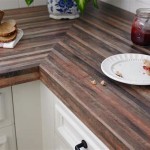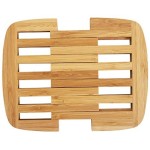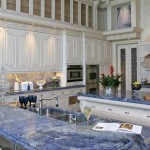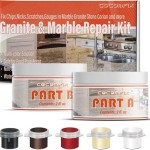Best Type Of Wood For Butcher Block Countertops
Butcher block countertops have become increasingly popular in both residential and commercial kitchens due to their durability, aesthetic appeal, and versatility. Choosing the right type of wood is paramount to ensuring a butcher block countertop not only meets functional requirements for food preparation but also withstands the rigors of daily use and maintains its beauty over time. Several factors influence the suitability of different wood species, including hardness, grain pattern, porosity, and resistance to moisture and bacteria. This article will explore the best wood options for butcher block countertops, detailing their specific characteristics and advantages.
Hard Maple: A Classic Choice for Durability and Hygiene
Hard maple, also known as sugar maple, is a widely recognized and highly regarded choice for butcher block countertops. Its hardness is a key advantage, allowing it to resist scratches and dents from knives and other kitchen tools. The Janka hardness scale, which measures the resistance of wood to indentation, typically ranks hard maple between 1450 and 1450 lbf (pounds-force). This provides a stable and resilient surface for chopping, slicing, and other food preparation tasks.
Beyond its hardness, hard maple features a fine, closed grain which contributes to its hygienic properties. The tight grain structure minimizes the absorption of liquids and food particles, making it easier to clean and sanitize. This is particularly important in a butcher block environment, where preventing bacterial growth is crucial. The light color of hard maple also makes it easier to spot any spills or potential contamination, facilitating thorough cleaning practices. Furthermore, hard maple does not impart any significant flavor or odor to food, ensuring the integrity of ingredients being prepared on the surface. The consistent color and appearance of hard maple provide a clean, uniform aesthetic that complements various kitchen styles.
While hard maple offers excellent durability and hygiene, it requires proper maintenance to prevent drying and cracking. Regular oiling with food-safe mineral oil or butcher block conditioner is essential to keep the wood hydrated and prevent moisture from penetrating the surface. Proper sealing and maintenance routines maintain the integrity and extend the life of the butcher block countertop. Hard maple is not as resistant to moisture as some other hardwoods like teak, making regular maintenance essential to its longevity.
Walnut: Elegance and Richness in Grain
Black walnut is a premium hardwood renowned for its rich, dark color and distinctive grain patterns, making it a sophisticated choice for butcher block countertops. While slightly softer than hard maple, with a Janka hardness of approximately 1010 lbf, walnut still provides a suitable working surface for food preparation. Its softer nature can be considered a benefit in some cases, as it is gentler on knives, helping to maintain their sharpness longer compared to harder woods.
The appeal of walnut lies primarily in its aesthetic qualities. The deep brown hues and intricate grain variations add warmth and elegance to any kitchen. Walnut butcher block countertops often serve as a focal point, enhancing the overall design. The wood's natural oils also contribute to its durability and resistance to moisture, although regular oiling is still necessary to prevent drying and cracking.
Despite its aesthetic advantages, walnut requires more careful consideration in terms of hygiene compared to hard maple. Its more open grain structure can potentially trap food particles and bacteria if not properly sealed and maintained. Routine cleaning with mild soap and water, followed by thorough drying and regular oiling, is crucial to ensure a sanitary surface. The cost of walnut is generally higher than that of hard maple, reflecting its premium status and aesthetic value. This higher price point should be factored into the decision-making process.
Oak: A Budget-Friendly and Durable Option
Oak, particularly white oak, presents a cost-effective and durable option for butcher block countertops. With a Janka hardness ranging from 1290 to 1360 lbf, white oak offers substantial resistance to wear and tear. Its density and closed cellular structure provide good resistance to moisture, making it suitable for kitchen environments where spills are common.
White oak is known for its prominent grain patterns, which can add character and texture to a butcher block countertop. This distinct grain, while visually appealing, can also pose challenges regarding hygiene. The open pores of oak can potentially trap food particles and bacteria, requiring more diligent cleaning practices. Proper sealing with a food-safe sealant is essential to minimize the risk of contamination and ensure a sanitary surface.
Red oak is another type of oak with greater availability, but it is not considered suitable for butcher block countertops because of its porous structure and high absorbency. Red oak is often used for furniture building and interior woodworking, but it is not recommended for areas that have a high risk of moisture contamination. White oak's natural tannins contribute to its resistance to decay and insects. These tannins, which act as natural preservatives, enhance the wood's longevity and make it a resilient choice for butcher block applications. The affordability of oak, combined with its durability, makes it a practical option for homeowners seeking a balance between cost and performance.
Cherry: Warmth and Richness with Careful Considerations
Cherry wood offers a warm, reddish-brown hue that deepens over time, providing a visually appealing option for butcher block countertops. While softer than hard maple, with a Janka hardness of approximately 950 lbf, cherry can still be a suitable choice with proper care and attention to maintenance.
The primary advantage of cherry lies in its aesthetic qualities. The rich color and smooth grain create an inviting surface that complements a variety of kitchen designs. Over time, exposure to light causes cherry to darken, developing a deeper, more lustrous patina that enhances its beauty. However, the softness of cherry makes it more susceptible to scratches and dents compared to harder woods. This necessitates a more cautious approach to food preparation, avoiding excessive force when chopping or cutting directly on the surface.
Maintaining a cherry butcher block countertop requires regular oiling to prevent drying and cracking. Its open pore structure can absorb liquids and food particles, leading to staining and bacterial growth if not properly sealed and maintained. Consistent cleaning with mild soap and water, followed by thorough drying and regular oiling, is essential to preserve its appearance and ensure a sanitary surface. Cherry wood can be more expensive than some other options like oak; hence, the higher cost is justified by its aesthetic appeal and luxurious finish. Ultimately, the decision to use cherry wood for a butcher block countertop will depend on an individual's willingness to provide the necessary maintenance and prioritize aesthetic qualities equally with durability.
Teak: Superior Moisture Resistance for Demanding Environments
Teak is a tropical hardwood renowned for its exceptional durability and resistance to moisture, making it an excellent choice for butcher block countertops, particularly in demanding environments where exposure to water is frequent. With a Janka hardness of approximately 1000 lbf, teak offers a stable and resilient surface, although it is softer than hardwoods such as hard maple. The high oil content of teak is what sets it apart, providing natural protection against water damage, decay, and insect infestation. This inherent resistance makes it ideal for countertops near sinks or in kitchens where spills are common.
The color of teak ranges from golden brown to dark brown, often exhibiting attractive grain patterns that enhance its aesthetic appeal. While teak is durable, it is important to note that its softness relative to other hardwoods means that it is susceptible to scratches and dents. Regular maintenance, including oiling, is still necessary to preserve its appearance and extend its lifespan. The natural oils present in teak help to repel water and prevent the wood from drying out, but consistent care ensures optimal performance. Teak can be more expensive than other wood options due to its import costs and unique properties. This higher price point is justified by its superior moisture resistance and long-term durability. When selecting teak for a butcher block countertop, it is important to source it from sustainable and responsible suppliers to ensure environmental considerations are addressed.
The closed pores in teak allow for easy and quick cleaning. Teak is less porous than other woods, which prevents build-up and bacterial growth. Although teak wood is known for its high oil content, adding a butcher block oil to the surface will help to prevent the wood from drying out over time.
Ultimately, selecting the best type of wood for a butcher block countertop depends on a careful evaluation of individual needs, aesthetic preferences, and maintenance capabilities. Hard maple provides a classic blend of durability and hygiene, while walnut offers elegance and richness. Oak presents a budget-friendly option with enhanced durability, while cherry adds warmth and color but requires more specialized maintenance. Teak stands as a superior choice for environments with high moisture exposure. This information will provide a solid foundation for making an informed decision, ensuring your butcher block countertop is both functional and visually appealing.

Size And Wood Species Options For Diy Butcher Block Projects Hardwood Reflections

Custom Wood Butcher Blocks

Butcher Block Countertops Ing Guide The Home

Popular Woods For Butcher Block Kitchen Countertops

The Top Rated Wood Countertop Materials For Every Type Of Kitchen

Size And Wood Species Options For Diy Butcher Block Projects Hardwood Reflections

Custom Wood Countertops Made To Order Oak City Customs

Butcher Block Countertop Review Fletcher Creek Cottage

How To Finish Butcher Block Countertops Forever Joint Tops

My Take On Butcher Block Countertops Woodn T You Like To Know
See Also








